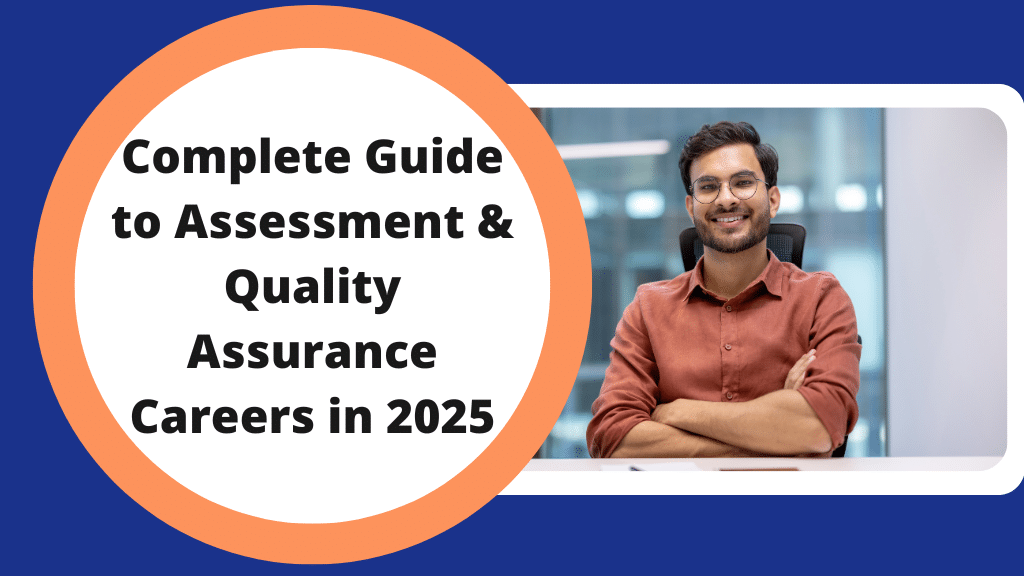January 26, 2024
How To Become A Qualified Assessor

Whether you’re looking to assess full-time or incorporate it into your existing role, becoming a qualified assessor can help you unlock all sorts of career opportunities. It’s great if you want a job that provides personal fulfilment and the chance to impact others’ careers and development significantly. Here’s a simple guide that will equip you with the knowledge and understanding of how to become a qualified assessor.
The Role Of An Assessor
An assessor is a person who is responsible for evaluating candidates against specific standards to achieve a qualification as part of a training course or to fulfil a requirement at their workplace. If you’ve ever heard people talking about having been “signed off” or having “passed” a test, they often mean that a qualified assessor has assessed them and they’ve met the required standards.
Many people still think about “passing” in terms of written exams; you remember those times we all endured at school when we sat in silence trying to remember French verbs? Luckily, assessing has moved on in the modern world and is no longer dominated by silently answering questions.
These days, assessments are carried out in various ways, such as:
- Observing candidates do tasks in the workplace, which means watching real people doing actual tasks.
- Interviewing candidates and getting them to demonstrate skills,
- Setting them projects to complete and reviewing them
- Engaging in discussions to gauge knowledge and abilities.
Skills Needed To Become A Qualified Assessor
To excel as a qualified assessor, specific skills and knowledge are essential to ensure effective and fair assessments and contribute significantly to the personal and professional development of the candidates you assess.
Stay Up To Date In Your Field
To be an assessor, expertise in your subject area is essential, meaning you should keep up with your field’s latest developments, theories, and practical aspects. Even if you’re already well-qualified and have experience in the industry, there’s always something new to learn, so ensure you’ve brushed up on the latest in your field by regularly updating your knowledge through publications, trade press, and updates from awarding bodies.
Good Communication Skills
Effective communication is at the core of being a successful assessor, which involves actively listening to candidates, giving feedback clearly and constructively, and engaging in open conversations.
A good assessor must be able to explain assessment criteria and decisions in a way that is understandable and beneficial for the candidate’s learning and development. Additionally, empathising and responding appropriately to people’s needs is essential to foster a positive assessment environment and ensure that candidates feel valued and understood.
Organisation Skills
Being well-organised is essential as assessors often manage various tasks at the same time, such as scheduling assessments, keeping accurate records, tracking candidate progress, and meeting deadlines.
Efficient organisational skills ensure that all aspects of the assessment process are handled smoothly and professionally, which helps to maintain high standards of assessment quality and integrity.
Flexible And Adaptable
The education industry and the methods and technologies used in assessment are constantly evolving. Therefore, assessors need to be flexible and adaptable. This means being open to new ideas, embracing innovative assessment methods, and continuously updating your knowledge and skills.
Adaptability also involves adjusting to different candidates’ learning styles and needs, ensuring that the assessment process is fair and effective for everyone. An assessor’s willingness to learn and adapt demonstrates professionalism and plays a significant role in their ability to provide relevant and up-to-date assessments.
Career Progression Opportunities
Once qualified, assessors have a variety of career advancement opportunities. These include specialising in specific industries, advancing to senior roles overseeing assessment strategies, or transitioning into training and curriculum development. Additionally, experienced assessors might consider consultancy roles, offering expertise in educational design and assessment frameworks.
Continuous professional development and research or policy work can further enhance an assessor’s career prospects. These pathways offer professional growth and the opportunity to influence the education and training industry significantly.
Choosing the Right Assessor Qualification
There are several assessor courses available for those interested in becoming an assessor. Each of these assessor qualifications caters to different assessment aspects, and choosing one that aligns with your career goals and the specific environments you plan to work in is important.
- Level 3 Award in Assessing Vocationally Related Achievement: This nationally recognised assessment award is ideal for those assessing in learning environments like courses or training sessions.
- Level 3 Award in Assessing Competence in the Work Environment: This qualification is tailored for those who precisely assess occupational competence in the workplace, making it ideal for people wanting to consider NVQ candidates or carry out on-the-job assessments.
- Level 3 Award in Assessing Vocational Achievement (CAVA): This course is designed for those who plan to assess occupational competence and vocational skills in various environments (such as workshops, classrooms, or different training environments). It is the most popular and well-known assessor qualification.
At Carlton Training, we are dedicated to guiding you in becoming a qualified assessor, whether you’re currently working in an assessor role or keen to kickstart a new and exciting career path. You can book your assessor course online today or contact us and speak to our knowledgeable team for tailored advice.
Next ›‹ Previous
Back to Blog








